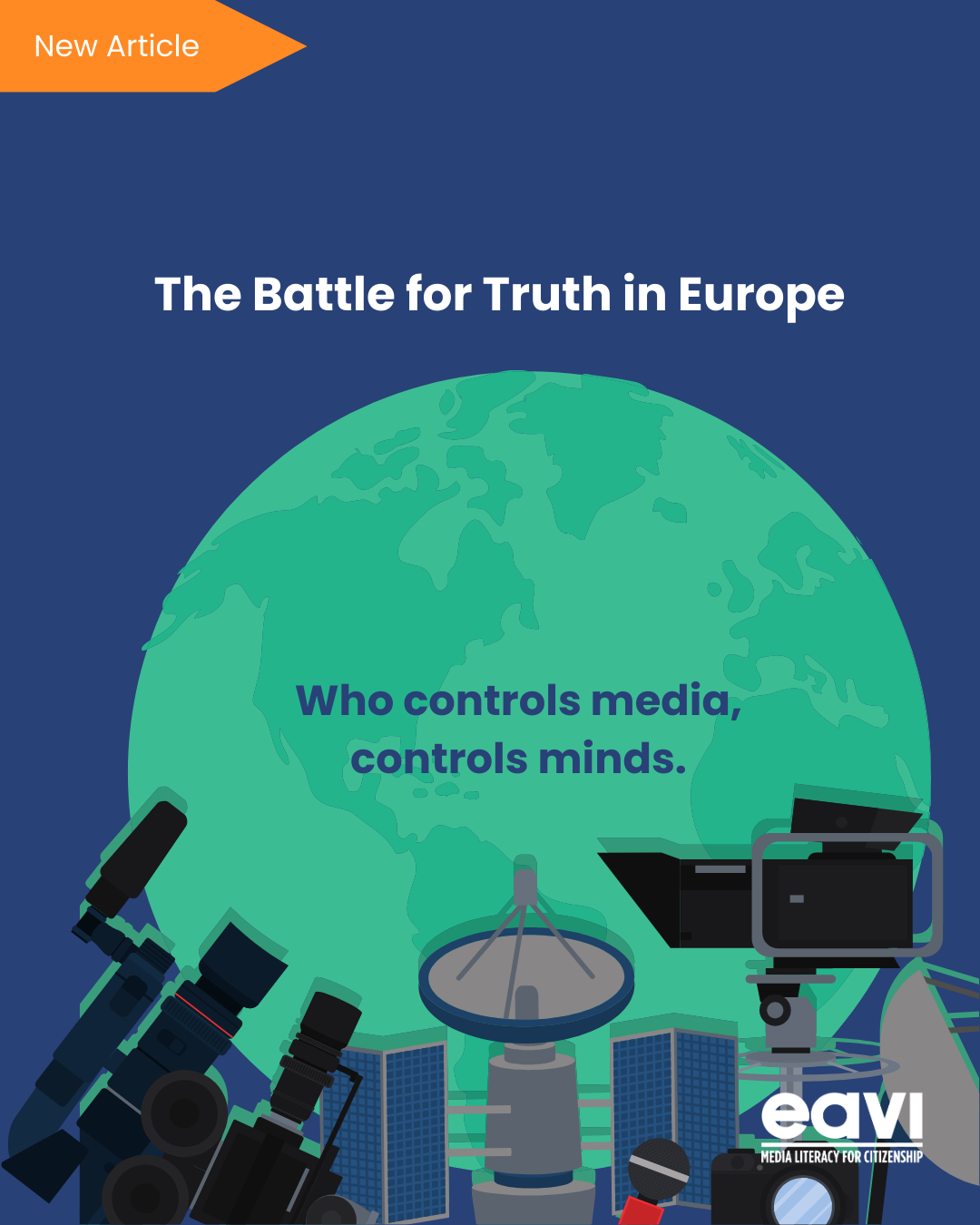
Independent media play a vital role in creating a public discourse, influencing public opinion, and ensuring accountability of those in positions of authority. It is considered as “a public watchdog” and “a key pillar of democracy. Therefore, the EU places significant emphasis on it and stands as a strong advocate for the existence of free and independent media on an international level. Simultaneously, there are growing concerns within the EU. The Commission has been closely monitoring these developments using tools such as the Rule of Law Report and the Media Pluralism Monitor. The challenges highlighted in previous Rule of Law reports have prompted various EU initiatives, including a recommendation on journalist safety and measures to combat abusive lawsuits against public participation (SLAPP).
The European Media Freedom Act, which was first announced during President von der Leyen’s 2021 State of the Union Address, is built upon the Commission’s rule of law reports and the revised Audiovisual Media Services Directive. This directive facilitates EU-wide coordination of national legislation for audio-visual media. The act also draws on the Digital Services Act (DSA) and Digital Markets Act (DMA), along with the new Code of Practice on Disinformation. It aligns with the EU’s commitment to promoting democratic participation, addressing disinformation, and supporting media freedom and pluralism, as outlined in the European Democracy Action Plan. Therefore, the act plays a crucial role in the context of media literacy.
The European Media Freedom Act comprises a new set of rules designed to safeguard media pluralism and independence within the European Union and ensures the easy operation of both public and private media across EU borders within the internal market, considering the digital transformation of the media landscape, and making sure that this is done without unwarranted pressures. By ensuring that both public and private media can operate more easily across borders within the EU internal market, the act promotes exposure to diverse perspectives and content. This cross-border operation enhances media literacy by offering audiences access to a broader range of information and viewpoints. The act also includes safeguards against unjustified removal of media content, especially those produced according to professional standards, which contribute to media literacy by preserving a diverse range of voices and opinions online. This protection allows audiences to access a variety of perspectives and encourages critical analysis of online content.
The Act also includes various provisions which have important implications in the context of media literacy. It mandates the Member States to respect effective editorial freedom and improve protection for journalistic sources. This ensures that media consumers are exposed to unbiased reporting and reliable information, fostering critical thinking and media literacy skills. Moreover, the inclusion of strong safeguards against the use of spyware on media and journalists helps to protect the integrity of news sources.
Furthermore, the act emphasizes the importance of adequate and stable funding for public service media to ensure editorial independence. Independent public service media contribute to media literacy by providing informative and impartial content that serves the public interest. There is also the establishment of new requirements for the allocation of state advertising that enhances transparency and non-discrimination. This is significant for media literacy as it ensures that audiences are not unduly influenced by biased or selective state advertising, allowing them to make informed judgments about the information presented.
To conclude, the European Media Freedom Act demonstrates that the European Union is taking important steps in the field of media literacy. This legislative framework addresses key aspects crucial for an informed and discerning public. By making sure an easy operation of media across borders, protecting editorial independence, and ensuring transparency in ownership and state advertising, the EU is promoting a diverse and unbiased media landscape. The Act’s provisions against the use of spyware, tests for media pluralism, and safeguards for online content removal highlight the commitment to preserving the integrity of information sources. Additionally, the emphasis on stable funding for independent public service media and the introduction of a user right to customize media offerings signal a dedication to empowering audiences. These measures collectively signify the EU’s proactive approach to enhancing media literacy, fostering critical thinking, and promoting well-informed democratic citizenship.
REFERENCES:

Independent media play a vital role in creating a public discourse, influencing public opinion, and ensuring accountability of those in positions of authority. It is considered as “a public watchdog” and “a key pillar of democracy. Therefore, the EU places significant emphasis on it and stands as a strong advocate for the existence of free and independent media on an international level. Simultaneously, there are growing concerns within the EU. The Commission has been closely monitoring these developments using tools such as the Rule of Law Report and the Media Pluralism Monitor. The challenges highlighted in previous Rule of Law reports have prompted various EU initiatives, including a recommendation on journalist safety and measures to combat abusive lawsuits against public participation (SLAPP).
The European Media Freedom Act, which was first announced during President von der Leyen’s 2021 State of the Union Address, is built upon the Commission’s rule of law reports and the revised Audiovisual Media Services Directive. This directive facilitates EU-wide coordination of national legislation for audio-visual media. The act also draws on the Digital Services Act (DSA) and Digital Markets Act (DMA), along with the new Code of Practice on Disinformation. It aligns with the EU’s commitment to promoting democratic participation, addressing disinformation, and supporting media freedom and pluralism, as outlined in the European Democracy Action Plan. Therefore, the act plays a crucial role in the context of media literacy.
The European Media Freedom Act comprises a new set of rules designed to safeguard media pluralism and independence within the European Union and ensures the easy operation of both public and private media across EU borders within the internal market, considering the digital transformation of the media landscape, and making sure that this is done without unwarranted pressures. By ensuring that both public and private media can operate more easily across borders within the EU internal market, the act promotes exposure to diverse perspectives and content. This cross-border operation enhances media literacy by offering audiences access to a broader range of information and viewpoints. The act also includes safeguards against unjustified removal of media content, especially those produced according to professional standards, which contribute to media literacy by preserving a diverse range of voices and opinions online. This protection allows audiences to access a variety of perspectives and encourages critical analysis of online content.
The Act also includes various provisions which have important implications in the context of media literacy. It mandates the Member States to respect effective editorial freedom and improve protection for journalistic sources. This ensures that media consumers are exposed to unbiased reporting and reliable information, fostering critical thinking and media literacy skills. Moreover, the inclusion of strong safeguards against the use of spyware on media and journalists helps to protect the integrity of news sources.
Furthermore, the act emphasizes the importance of adequate and stable funding for public service media to ensure editorial independence. Independent public service media contribute to media literacy by providing informative and impartial content that serves the public interest. There is also the establishment of new requirements for the allocation of state advertising that enhances transparency and non-discrimination. This is significant for media literacy as it ensures that audiences are not unduly influenced by biased or selective state advertising, allowing them to make informed judgments about the information presented.
To conclude, the European Media Freedom Act demonstrates that the European Union is taking important steps in the field of media literacy. This legislative framework addresses key aspects crucial for an informed and discerning public. By making sure an easy operation of media across borders, protecting editorial independence, and ensuring transparency in ownership and state advertising, the EU is promoting a diverse and unbiased media landscape. The Act’s provisions against the use of spyware, tests for media pluralism, and safeguards for online content removal highlight the commitment to preserving the integrity of information sources. Additionally, the emphasis on stable funding for independent public service media and the introduction of a user right to customize media offerings signal a dedication to empowering audiences. These measures collectively signify the EU’s proactive approach to enhancing media literacy, fostering critical thinking, and promoting well-informed democratic citizenship.
REFERENCES:

Independent media play a vital role in creating a public discourse, influencing public opinion, and ensuring accountability of those in positions of authority. It is considered as “a public watchdog” and “a key pillar of democracy. Therefore, the EU places significant emphasis on it and stands as a strong advocate for the existence of free and independent media on an international level. Simultaneously, there are growing concerns within the EU. The Commission has been closely monitoring these developments using tools such as the Rule of Law Report and the Media Pluralism Monitor. The challenges highlighted in previous Rule of Law reports have prompted various EU initiatives, including a recommendation on journalist safety and measures to combat abusive lawsuits against public participation (SLAPP).
The European Media Freedom Act, which was first announced during President von der Leyen’s 2021 State of the Union Address, is built upon the Commission’s rule of law reports and the revised Audiovisual Media Services Directive. This directive facilitates EU-wide coordination of national legislation for audio-visual media. The act also draws on the Digital Services Act (DSA) and Digital Markets Act (DMA), along with the new Code of Practice on Disinformation. It aligns with the EU’s commitment to promoting democratic participation, addressing disinformation, and supporting media freedom and pluralism, as outlined in the European Democracy Action Plan. Therefore, the act plays a crucial role in the context of media literacy.
The European Media Freedom Act comprises a new set of rules designed to safeguard media pluralism and independence within the European Union and ensures the easy operation of both public and private media across EU borders within the internal market, considering the digital transformation of the media landscape, and making sure that this is done without unwarranted pressures. By ensuring that both public and private media can operate more easily across borders within the EU internal market, the act promotes exposure to diverse perspectives and content. This cross-border operation enhances media literacy by offering audiences access to a broader range of information and viewpoints. The act also includes safeguards against unjustified removal of media content, especially those produced according to professional standards, which contribute to media literacy by preserving a diverse range of voices and opinions online. This protection allows audiences to access a variety of perspectives and encourages critical analysis of online content.
The Act also includes various provisions which have important implications in the context of media literacy. It mandates the Member States to respect effective editorial freedom and improve protection for journalistic sources. This ensures that media consumers are exposed to unbiased reporting and reliable information, fostering critical thinking and media literacy skills. Moreover, the inclusion of strong safeguards against the use of spyware on media and journalists helps to protect the integrity of news sources.
Furthermore, the act emphasizes the importance of adequate and stable funding for public service media to ensure editorial independence. Independent public service media contribute to media literacy by providing informative and impartial content that serves the public interest. There is also the establishment of new requirements for the allocation of state advertising that enhances transparency and non-discrimination. This is significant for media literacy as it ensures that audiences are not unduly influenced by biased or selective state advertising, allowing them to make informed judgments about the information presented.
To conclude, the European Media Freedom Act demonstrates that the European Union is taking important steps in the field of media literacy. This legislative framework addresses key aspects crucial for an informed and discerning public. By making sure an easy operation of media across borders, protecting editorial independence, and ensuring transparency in ownership and state advertising, the EU is promoting a diverse and unbiased media landscape. The Act’s provisions against the use of spyware, tests for media pluralism, and safeguards for online content removal highlight the commitment to preserving the integrity of information sources. Additionally, the emphasis on stable funding for independent public service media and the introduction of a user right to customize media offerings signal a dedication to empowering audiences. These measures collectively signify the EU’s proactive approach to enhancing media literacy, fostering critical thinking, and promoting well-informed democratic citizenship.
REFERENCES:








































































































































































